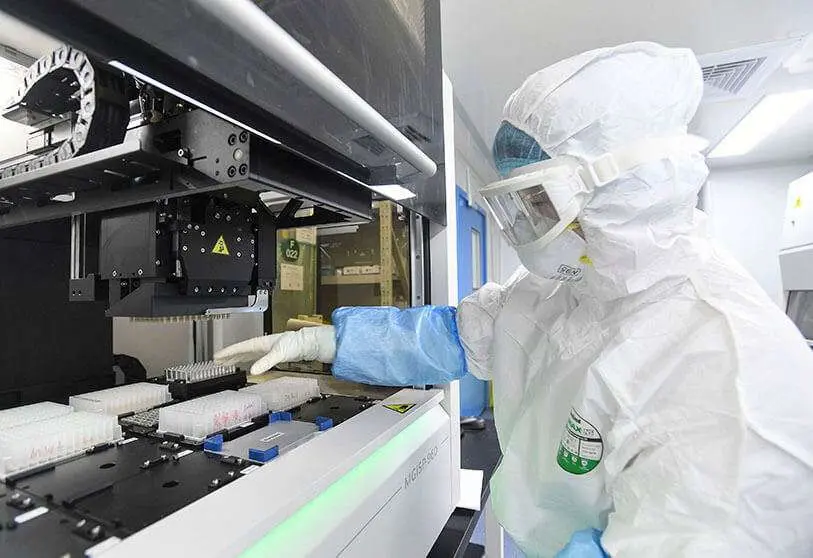The RNA revolution

In four months it will be the second anniversary of a pandemic that we are trying to defeat with the best of scientific talent, innovative projects and research that is flowing like water thanks to the flow of money, both public and private donations.
Two years of biological warfare with a pathogen of unknown origin that by the end of November had killed more than 5 million human beings worldwide and infected some 260 million people.
The damage, in terms of human lives affected, could even have been much greater had it not been for the anti-COVID vaccines that appeared in record time to save billions of people: the first to be patented was the Russian Sputnik V on 11 August 2020, followed six days later by the Chinese one developed by the Military Scientific Institute and CanSino Biologics.
Then came those of the West with Moderna, Pfizer-BioNtech, AstraZeneca, Janssen with Johnson & Johnson, giving way to a new generation of vaccines with the messenger RNA technique empowering the use of Ribonucleic Acid as a tool to give instructions to the organism of living beings to produce the antigen and provoke the reaction of the immune system. In the coronavirus, the S or Spike protein is precisely the antigen.
A few days ago I had the opportunity to have an exclusive interview with two outstanding scientists: the Spanish virologist Luis Enjuanes and the Israeli researcher Dan Peer.
These two brilliant minds coincided in pointing out that science and technology have been placed as two indisputable binomials in order to contribute to the well-being of human beings.
Both experts in the fields of chemistry, virology, biology, medicine and biotechnology have exchanged experiences and are seeking formulas for collaboration between laboratories in Spain and Israel through the Spanish National Research Centre (CSIC) and the University of Tel Aviv and its Centre for Combating Pandemics.
The health emergency and the need to defeat SARS-CoV-2 have brought the world's scientific community into the limelight and for the first time many of its members have been seen beyond their day-to-day activities in their white coats, goggles or even wearing their bubble suits in high-security laboratories.
The septuagenarian scientist arrived at the Maimonides prize gala, awarded to Enjuanes on Thursday 18 November for his outstanding career among pathogens and test tubes, in a sober suit, as did Peer, who was also invited to the ceremony.
And they did so convinced that never before have medicine, biology and technology proved to be three essential pillars to protect human life in the midst of a pandemic caused by a new virus that does not behave like any of the other six coronaviruses discovered and analysed.
Peer is right on target: "Without vaccines we wouldn't be here. If you had told me 12 years ago that the future of people would depend on technology and medicine, I would have said 'no'. But now we know that biology and technology are saving and will save the world in many ways in this century.
The Israeli scientist is vice president for research and development at Tel Aviv University and director of the NanoMedicine Laboratory and a dedicated teacher who encourages the next generation of doctoral students. To his credit - as a researcher - he has great successes and a multitude of patents; he and his team succeeded in demonstrating immunomodulation through RNA and is practically one of the pioneers of using RNA to reprogramme immune cells and find novel therapies.
What has happened with messenger RNA, in immunisations against SARS-CoV-2, with the technique of the US company Moderna and the German-Turkish company BioNtech, partnered to produce the vaccine with the US company Pfizer, is a true revolution in the world of vaccinology. It could change everything that has been known so far and open up fertile ground for finding a vaccine against HIV or cancer.
Peer explains that although Israel was researching a vaccine similar to AstraZeneca's COVID-19 vaccine, the government decided to support Pfizer with the messenger RNA and it worked because in December 2020, in one week, they had already vaccinated one million people.
And note down the name of Dan Peer, my friend reader, because he will surely win the Nobel Prize in Chemistry or Medicine at some point for his novel studies to eliminate cancer: it is a novel nanotechnology system that allows the destruction of cancer cells so far tested on mice and has been quite surprising because it works like "molecular scissors that sweep to the metastasis"; the goal is to start testing it, in a couple of years, on sick people. He is very optimistic.

